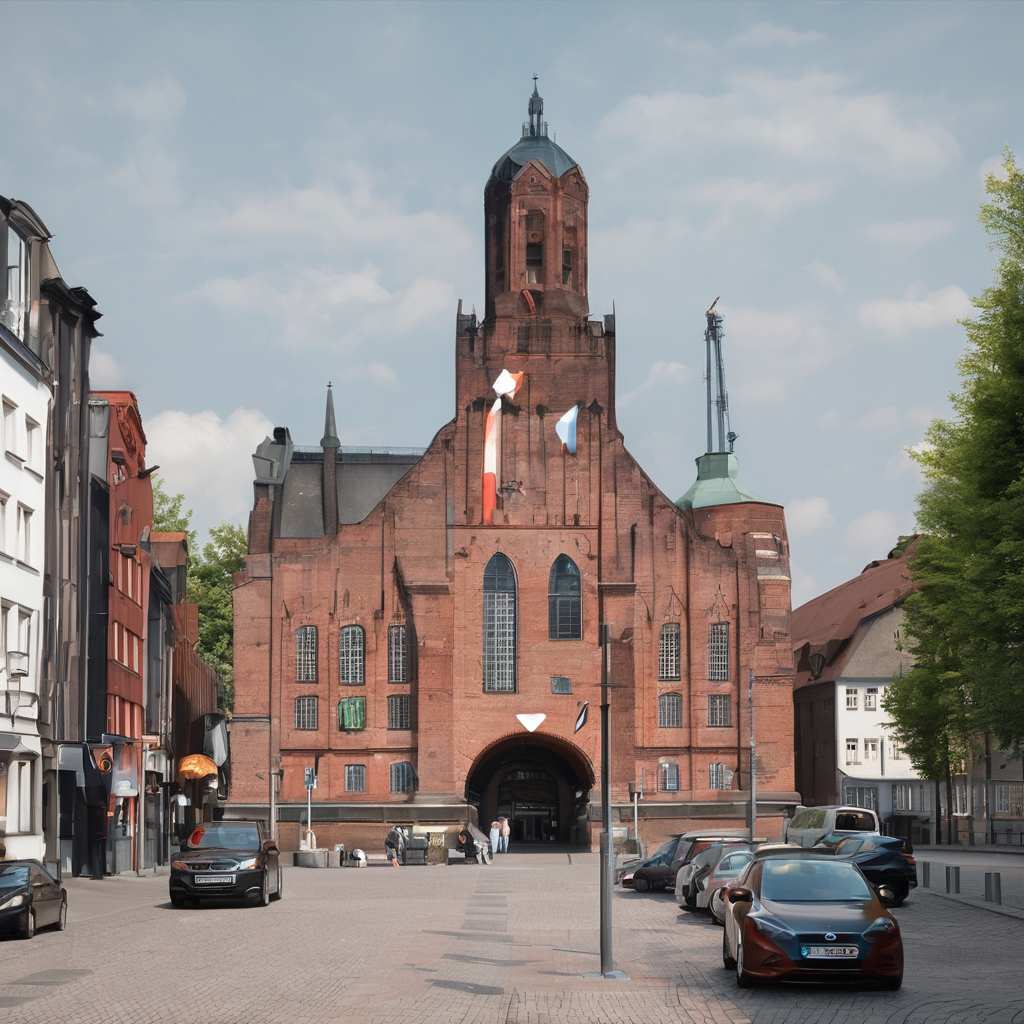Overview of the British Industrial Revolution
The British Industrial Revolution was a transformative period in history that began in the late 18th century and extended into the 19th century. It marked a profound shift from agrarian economies to industrialised societies, significantly altering how goods were produced and consumed. This era’s historical significance lies in its advances that laid the groundwork for modern industries and technologies.
Key events during this period included the development of the steam engine, mechanisation of textile production, and expansion of iron and coal production. These innovations greatly increased efficiency and productivity, fuelling further economic and societal changes. The advent of the steam engine, in particular, revolutionised transportation and manufacturing processes, making widespread distribution of goods possible on an unprecedented scale.
Have you seen this : Discover serene escapes: best ryokan experiences in osaka
Prominent figures such as James Watt, who improved the steam engine, and Richard Arkwright, known for his water frame in textile production, played pivotal roles. Their contributions were instrumental in advancing the Industrial Revolution and shaping our contemporary world.
The British Industrial Revolution’s influence extends beyond economics and industry, impacting social structures, urban development, and even culture. It launched a wave of innovation, leading to technological advancements that continue to benefit society today. Understanding this era’s key events and figures is crucial to appreciating its enduring legacy.
Also to read : Unlock Premier Guided Tours of Iconic Literary Landmarks in the Lake District
Key Locations of Interest
Exploring the historical sites linked to the British Industrial Revolution offers an in-depth understanding of this transformative era. These key locations provide tangible links to past innovations and advancements.
Manchester: The Birthplace of the Industrial Revolution
Renowned as the birthplace of the Industrial Revolution, Manchester played a crucial role in industrial history. Visitors can explore notable sites such as the Science and Industry Museum, which encapsulates the city’s industrial heritage. Tour guides often highlight the city’s legacy, illustrating how Manchester’s contributions set the stage for global industrialisation.
Ironbridge: The Cradle of Industry
Recognised for its historical significance, Ironbridge is another pivotal location. Visitors should not miss the Ironbridge Gorge Museums, showcasing the cradle of industry. Guided tours emphasize the importance of Ironbridge through engaging storytelling, offering insights into its innovations.
Birmingham: The Workshop of the World
Birmingham earned its nickname due to its vast industrial output. Key attractions include the Birmingham Museum and Art Gallery, where one can delve into the city’s industrial past. Tour experiences often feature expert insights, making the history of Birmingham’s industrial development come alive for attendees.
Types of Guided Tours Available
Guided tours offer an array of options, each designed to enrich historical experiences of the British Industrial Revolution. From leisurely walking tours exploring cityscapes to expansive bus tours covering greater distances, visitors find tailored experiences to suit their interests and comfort levels.
Walking tours immerse attendees in the locales themselves, allowing for a nuanced appreciation of industrial landmarks. On the other hand, bus tours provide a broader overview, making it feasible to visit multiple significant sites over a short period. These tours often include insightful commentary from expert guides.
Themed tours present another exciting option, concentrating on specific aspects like textile innovations or transportation advancements. These tours offer in-depth exploration of chosen topics, appealing to enthusiasts and scholars alike.
The choice between private and group tours significantly impacts the experience. Private tours cater to more personalised interactions with guides, perfect for those seeking a bespoke journey. In contrast, group tours foster shared experiences, often at a reduced cost, making historical exploration an engaging collective activity.
Each type of guided tour uniquely highlights the historical sites and key locations of interest, enhancing the understanding of this transformative era.
Itineraries and Tour Suggestions
For those eager to delve into the rich history of the British Industrial Revolution, thoughtfully crafted tour itineraries can greatly enhance the experience. Whether planning a brief day trip or an extensive week-long exploration, tailored itineraries can provide a comprehensive view.
Sample itineraries are available for various durations:
- Day Tour: Focus on a single city like Manchester, visiting historical sites such as the Science and Industry Museum.
- Weekend Tour: Expand to key locations like Ironbridge and Birmingham, each offering unique insights into industrial history.
- Week-long Tour: Immerse oneself in multiple cities, incorporating broader themes such as transportation and textile innovations.
Thematic tours offer specialised experiences, catering to particular interests. Enthusiasts might explore the evolution of textile machinery or focus on transportation advancements, enabling a deeper understanding of these crucial aspects.
When planning your tour, consider using planning tools that allow for itinerary customisation. This flexibility ensures that personal interests are prioritised, enhancing engagement. Simple online platforms offer dynamic adjustment options, ensuring tours stay relevant and tailored to unique preferences and curiosities.
Expert Guides and Their Credentials
When exploring the British Industrial Revolution, the role of expert guides is crucial in enhancing the experience. These knowledgeable tour leaders bring history to life, offering insights that a guidebook cannot. Their understanding of key events and historical significance provides a richer context for visitors.
Experienced guides typically have backgrounds in history or education, often holding relevant degrees. Such credentials ensure they possess a deep understanding of the period. Many guides are passionate about sharing their knowledge, captivating audiences with their storytelling abilities.
Testimonials from customers frequently highlight guides’ enthusiasm and depth of knowledge. Visitors appreciate the personal anecdotes and historical contexts that expert guides provide. These elements transform a standard tour into a memorable journey through Britain’s industrial past.
For those planning a tour, interviewing potential guides can be beneficial. Pay attention to their narration style and how they engage their audience. Quality guides will not only inform but inspire curiosity about the historical sites and key locations visited. The right guide will make the experience educational and enjoyable, fostering a better appreciation for this transformative era.
Pricing and Booking Options
When planning an excursion through the British Industrial Revolution, understanding the tour pricing and booking options is vital for effective budget planning. Tour costs generally vary based on duration and type, with average prices for walking tours starting at a modest range, while more comprehensive bus tours can be pricier due to their extended itinerary.
Online booking platforms and the websites of tour companies provide seamless booking options, allowing easy comparison of pricing details. It is advisable to explore multiple platforms to secure the best rates.
To enhance the value of your experience, look out for special discounts and special offers. Many companies provide early booking discounts, or package deals when booking multiple tours, helping travellers maximize their budget. Signing up for newsletters from tour operators can also reveal exclusive discounts that might not be advertised elsewhere.
For those seeking premium experiences, exclusive tours often come with a higher price, justifying the cost with added benefits like private guide access or bespoke itineraries. Thoughtful pricing consideration and strategic planning ensure a fulfilling journey through the annals of industrial history, without compromising financial constraints.
Customer Reviews and Experiences
Examining customer reviews provides invaluable insights into the quality and engagement level of historical tours connected to the British Industrial Revolution. Many tour feedbacks commend the guides for their exceptional knowledge and ability to animate history, making each visit more than just an educational experience. This skill enhances the user’s overall experience, often leaving visitors inspired and informed.
Reviews commonly highlight the guides’ ability to connect with the audience, turning the industrial past of places like Manchester and Birmingham into captivating narratives. This engagement level is a recurring theme in user experiences, fostering a deeper appreciation for the historical sights.
Conversely, some feedback suggests improvements. Occasionally, itineraries are noted for being too packed, suggesting a need for better pacing to allow more time for exploration. Other points of contention involve technological aspects, such as audio guides or headset quality, which, when improved, can significantly enhance the narrative delivery.
Overall, customer reviews are integral to refining tour experiences. By addressing areas for improvement while maintaining strengths like knowledgeable guides and engaging storytelling, tours can continue to evolve positively, ensuring they meet the diverse needs of all attendees.
Unique Features and Themes of Tours
Guided tours tied to the British Industrial Revolution have evolved to offer unique experiences that captivate and educate visitors. Among these, thematic tours focus on particular historical themes, providing distinct insights into industrial innovations.
Immersive experiences, such as reenactments and interactive learning activities, place you directly in historical scenarios. For instance, you might find yourself participating in a Lancashire cotton mill reenactment, gaining firsthand understanding of the era’s textile industry operations. Such thematic experiences elevate the tour beyond passive observation, encouraging active participation.
Moreover, tours often incorporate additional learning opportunities via workshops and lectures. These sessions, led by knowledgeable tour leaders, delve deeper into topics like the evolution of the steam engine, allowing for a richer comprehension of its impact.
Seasonal or widely promoted special event tours frequently highlight specific historical aspects, catering to enthusiasts seeking a nuanced narrative. These periods can coincide with anniversaries of significant key events, offering exclusive access to educational materials and exhibitions otherwise unavailable.
By blending educational content with interactive elements, these tours offer a comprehensive exploration of the British Industrial Revolution’s complex legacy.




